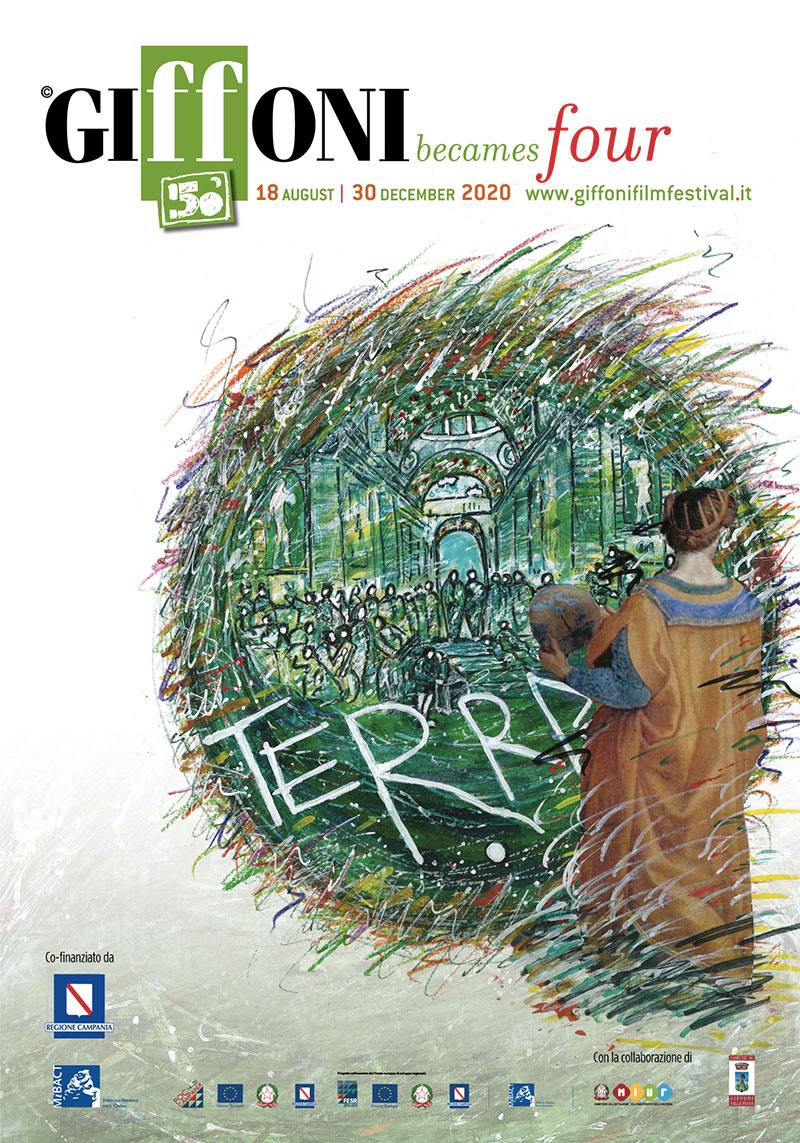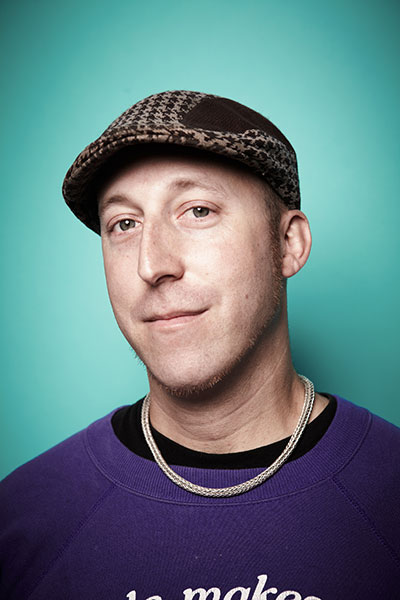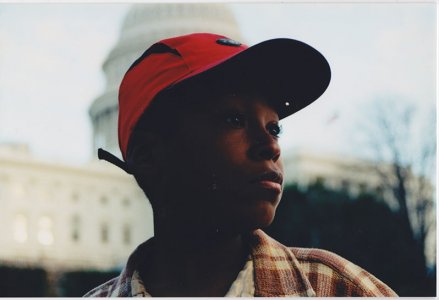In 1999, nine-year-old Emmanuel Sanford-Durant and his Washington, D.C. family began to film their daily lives in America's most dangerous neighborhood — just 17 blocks behind the U.S. Capitol building. They've been filming ever since. Made in a unique collaboration with filmmaker and journalist Davy Rothbart, the film focuses on four generations of the Sanford Family, including Emmanuel, a promising student, his brother Smurf, a local drug dealer, his sister Denice, an aspiring cop, and his mother Cheryl, who must conquer her own demons for her family to prosper. Spanning two decades, 17 BLOCKS illuminates a nation's ongoing crisis through one family’s raw, stirring, and deeply personal saga.

Sections & Films
17 BLOCKS
| Original Title | 17 Blocks |
| Category | Official Competition |
| Section | GEx Doc |
| Tipology | Documentary |
| Duration | 96’ |
| Production Year | 2019 |
| Nationality | USA |
| Directed by | Davy Rothbart |
| Screenplay | Jennifer Tiexiera |
| In collaboration with | the Sanford-Durant Family |
| Director of photography | Zachary Shields |
| Editor | Jennifer Tiexiera |
| Music | Nick Urata |
| Main cast |
Cheryl Sanford Chris Feddersen Emmanuel Sanford-Durant, Jr. Denice Sanford-Durant Akil “Smurf” Sanford Neville “Joe” Rankin Anthony Plater St. James Cashwell |
| Produced by | Alex Turtletaub, Michael B. Clark, Marc Turtletaub, Rachel Dengiz, Davy Rothbart |
 DAVY ROTHBART
DAVY ROTHBART
Davy Rothbart is an Emmy Award-winning filmmaker, bestselling author and journalist, frequent contributor to public radio's This American Life, and the creator of Found Magazine. Rothbart's film MEDORA, about a resilient high-school basketball team in a dwindling Indiana town, based on the New York Times story by Pulitzer Prize winner John Branch, was Executive Produced by Steve Buscemi and Stanley Tucci, and premiered at the 2013 SXSW Film Festival. MEDORA later aired on the acclaimed PBS series INDEPENDENT LENS and won an Emmy Award. Rothbart previously directed two documentaries about the activist band Rise Against, which became best-selling DVDs in the U.S., Canada, Germany, and Sweden. A separate short film featuring Rise Against's song "Make It Stop" was created for Dan Savage's ItGetsBetter project and later won an MTV Music Video Award.
Rothbart's radio stories featured on This American Life have reached more than 20 million listeners, and his books Found and My Heart Is An Idiot have debuted on The New York Times Bestseller List. He has made multiple appearances on The Late Show With David Letterman, been featured on ABC's 20/20, Last Call with Carson Daly, MSNBC, and NPR's All Things Considered, and been profiled in The New Yorker and The New York Times. A native of Ann Arbor, Michigan, Rothbart now lives in Los Angeles, California.
Director’s statement
“In 1999, playing basketball near my apartment in Southeast Washington, D.C., I became friends with a teenager named Smurf, who was 15, and his little brother Emmanuel, who was 9. As our friendship grew, and I got to know their mom, Cheryl Sanford, and their 12-year-old sister Denice. Emmanuel expressed an interest in filmmaking. I taught him how to use my small, handheld video camera, and started leaving it with him overnight and on weekends. Emmanuel shared the footage that he and his siblings began to collect — absorbingly raw and intimate family moments, and intriguing glimpses of characters from around the neighborhood.
Sometimes I turned the camera around and interviewed Emmanuel; sometimes he turned it back around to interview me.
I had my own loving parents and siblings, but they were hundreds of miles away, and Cheryl likes to say that her family “adopted” me. We became a daily part of each other’s lives. We hunkered down together to ride out the Y2K “apocalypse”; we spent birthdays and Thanksgivings together. Bright, hilarious, and endlessly curious, Emmanuel became a kid brother to me. We roamed the neighborhood, filming together, and talking about life. As I grew close to Cheryl, Smurf, and Denice, they began to share their struggles, hopes, and dreams with me, too, often on camera.
Even after I moved out of D.C., I remained close with the Sanford Family. I’d often visit them for Thanksgiving and other holidays, and over the years we continued to film from time to time. It was always a thrill for us to be reunited, and an added blessing when Smurf and Denice had their first kids. In 2009, ten years after we’d first met, to see Emmanuel graduate high school, get engaged to his high school sweetheart, and begin training as a firefighter filled me with joy.
Then, on New Year’s Eve, tragedy struck the Sanford Family. Gun violence, always a constant in their neighborhood, thrust itself into their lives with horrendous, heartbreaking consequences. I flew to D.C. the next day to help in any way I could, and Cheryl greeted me with a question: Where’s your video camera? “So many people are killed by guns in our neighborhood,” she told me, “but none have had their entire lives documented as thoroughly as my family.” Somehow, even in the midst of her pain, Cheryl had the wisdom and perspective to understand the value and importance that her family’s story might one day hold.
Even as the Sanfords waded through devastating loss, we all continued to film, tracking each moment in all of its lacerating sadness. Since this kind of tragedy was new to me personally, I’d had no idea, for example, that a shop down the street existed purely to print memorial T-shirts for friends and loved ones who’d been shot and killed. As the family mourned, I was struck by not only the intensity of their pain, but also by how common their experience seemed to be within their neighborhood, and the ordinariness with which an extraordinary event was treated, as the community’s machinery of grief rumbled to life to process yet another victim. As wounded as I felt at the loss of someone I’d grown so close to, I felt equally crushed, angered, and disturbed by the massacre that was playing out in slow motion in many D.C. neighborhoods, and in cities across the country, largely invisible to the masses. Cheryl told me that it was her deepest wish that sharing her family’s story might spark wider interest in combating the ubiquity of guns in her city, and diminish the chances that others might have to endure the pain that she was experiencing.[…] In honor of their slain family member, in 2010 the Sanfords and I started an organization called Washington To Washington (WashingtonToWashington.org), bringing groups of kids from their D.C. neighborhood on a week-long camping trip each summer to visit some of America’s most beautiful National Parks and Forests. We hike, swim, canoe, ride horses, play games, build campfires, make S’mores, and trade ghost stories. These trips can’t cure all of the challenges many of these kids face, but offer a chance for them to broaden their perspectives, experience the joys of nature, and discover worlds beyond the block they live on.
[…] As for 17 BLOCKS, our hope is that anyone who watches the film will feel a call to make the world a better place for our country’s most vulnerable citizens — by fighting to make our most dangerous communities safer, and by looking for ways to engage with the people who live there — cultivating connections, forging friendships, discovering a shared sense of purpose, and sparking creativity and a sense of wonder. If we want a changed world, it’s up to us to make it happen.”
production
Beachside Films (USA)
www.beachsidefilms.com
international distribution
festival contact
Cinephil (Israel)
www.cinephil.com





